
Jose M Costa
José Costa, a doctoral candidate specializing in Metallurgical and Materials Engineering at the University of Porto’s Faculty of Engineering (FEUP), brings a unique blend of academic and industry experience. His academic credentials include a BSc and an MSc in Metallurgical and Materials Engineering from FEUP, and an Advanced Studies degree in Services Management from the University of Porto’s Faculty of Economics (FEP).
José’s research is primarily focused on metal additive manufacturing processes, with a particular interest in laser powder bed fusion and material extrusion systems. His current research objective is intertwined with Design for AM, advanced materials development, and exploring innovative methodologies. Recently, he has developed an interest in Large Language Models (LLM) for mechanics and materials modeling strategies, which bridge knowledge across scales, disciplines, and modalities and simulate materials’ behavior under various conditions, thereby accelerating the research process by minimizing the need for physical experiments.
With over a decade of industry experience, particularly in the automotive sector, José has held various roles in research, development, innovation, advanced manufacturing, and project management. His transition to academia has seen him take on the role of an Invited Assistant and Research Fellow at FEUP, where he is involved in projects related to metal AM. This shift from industry to academia highlights his adaptability, expertise, and commitment to advancing the metallurgical and materials engineering field and AM while maintaining a solid connection to industrial applications.
In his previous role as a Technical and Operations Manager in Innovation, José spearheaded the establishment of a European innovation laboratory. His leadership skills are evident in his ability to build high-performing teams in diverse and multicultural settings, underpinned by his resilience, analytical prowess, and forward-thinking approach. His expertise allows him to strategically guide engineering, technical, operations, and innovation departments across various domains such as advanced manufacturing, research and development, project management, and procurement. José excels in aligning organizational strategies with short-, medium-, and long-term objectives, demonstrating effective leadership in global matrix organizations, managing cross-functional teams proficiently, and fostering a culture of excellence in multicultural environments, all while keeping a close eye on budgetary considerations.
Supervisors: Manuel F. Vieira
Phone: +351225081400
Address: Rua Dr. Roberto Frias, s/n
José’s research is primarily focused on metal additive manufacturing processes, with a particular interest in laser powder bed fusion and material extrusion systems. His current research objective is intertwined with Design for AM, advanced materials development, and exploring innovative methodologies. Recently, he has developed an interest in Large Language Models (LLM) for mechanics and materials modeling strategies, which bridge knowledge across scales, disciplines, and modalities and simulate materials’ behavior under various conditions, thereby accelerating the research process by minimizing the need for physical experiments.
With over a decade of industry experience, particularly in the automotive sector, José has held various roles in research, development, innovation, advanced manufacturing, and project management. His transition to academia has seen him take on the role of an Invited Assistant and Research Fellow at FEUP, where he is involved in projects related to metal AM. This shift from industry to academia highlights his adaptability, expertise, and commitment to advancing the metallurgical and materials engineering field and AM while maintaining a solid connection to industrial applications.
In his previous role as a Technical and Operations Manager in Innovation, José spearheaded the establishment of a European innovation laboratory. His leadership skills are evident in his ability to build high-performing teams in diverse and multicultural settings, underpinned by his resilience, analytical prowess, and forward-thinking approach. His expertise allows him to strategically guide engineering, technical, operations, and innovation departments across various domains such as advanced manufacturing, research and development, project management, and procurement. José excels in aligning organizational strategies with short-, medium-, and long-term objectives, demonstrating effective leadership in global matrix organizations, managing cross-functional teams proficiently, and fostering a culture of excellence in multicultural environments, all while keeping a close eye on budgetary considerations.
Supervisors: Manuel F. Vieira
Phone: +351225081400
Address: Rua Dr. Roberto Frias, s/n
less
Related Authors
Ajit Behera
National Institute of Technology Rourkela
Joyjeet Ghose
Birla Institute of Technology, Mesra (Ranchi) India
AVEZ SHAIKH
Penn State University
Prof Fatai O Aramide
Federal University of Technology Akure
Vahid Hassani
City, University of London
Aamer Nazir
National Taiwan University of Science and Technology
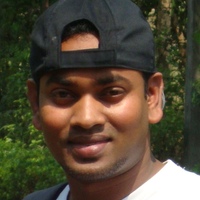

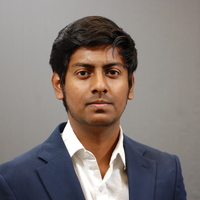
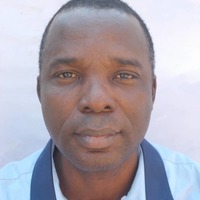
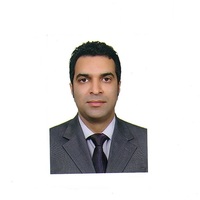
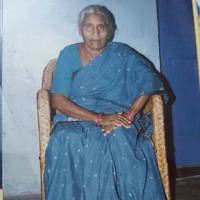

Uploads
Papers by Jose M Costa
These steps are interrelated, where the parameters interact with the others and have a key role in the integrity and quality of the final metallic parts. FFF can produce high-accuracy and complex metallic parts, potentially revolutionizing the manufacturing industry and taking AM components to a new level. In the FFF technology for metallic materials, material compatibility, production quality, and cost-effectiveness are the challenges to overcome to make it more competitive compared to other AM technologies, like the laser processes. This review provides a comprehensive overview of the recent developments in FFF for metallic materials, including the metals and binders used, the challenges faced, potential applications, and the impact of FFF on the manufacturing (prototyping and end parts), design freedom, customization, sustainability, supply chain, among others.
Book Chapter by Jose M Costa
Thesis Chapters by Jose M Costa
The experimental investigation involved the analysis of maraging steel powder, microstructure of produced parts, mechanical properties and dimensional analysis. The results of experimental evaluation demonstrated that after age-hardening parts achieved the hardness pre-defined requirements, they also present, at the same time, a very high density. With this dissertation it is intended to bring knowledge about MbAM to YAZAKI to support future steps and decisions. The first chapter, Literature Revision, starts by presenting additive manufacturing, defining it and showing the path taken. After this, it is presented all the different process approaches to MbAM, benefits and limitations. It ends with the analysis of the equipment used in this work, EOS M 290, and properties of maraging steel. The second chapter, Experimental Procedure, mentions all the methods used, from parts manufacturing to post-processing operations (trimming, age-hardening) and analysis carried out (like hardness, SEM/EDS evaluations, tensile tests, among others). The results are presented and analyzed in chapter three, and conclusions are presented in chapter four. The report finishes with Future Steps chapter.
Magazine by Jose M Costa
Conference Presentations by Jose M Costa
These steps are interrelated, where the parameters interact with the others and have a key role in the integrity and quality of the final metallic parts. FFF can produce high-accuracy and complex metallic parts, potentially revolutionizing the manufacturing industry and taking AM components to a new level. In the FFF technology for metallic materials, material compatibility, production quality, and cost-effectiveness are the challenges to overcome to make it more competitive compared to other AM technologies, like the laser processes. This review provides a comprehensive overview of the recent developments in FFF for metallic materials, including the metals and binders used, the challenges faced, potential applications, and the impact of FFF on the manufacturing (prototyping and end parts), design freedom, customization, sustainability, supply chain, among others.
The experimental investigation involved the analysis of maraging steel powder, microstructure of produced parts, mechanical properties and dimensional analysis. The results of experimental evaluation demonstrated that after age-hardening parts achieved the hardness pre-defined requirements, they also present, at the same time, a very high density. With this dissertation it is intended to bring knowledge about MbAM to YAZAKI to support future steps and decisions. The first chapter, Literature Revision, starts by presenting additive manufacturing, defining it and showing the path taken. After this, it is presented all the different process approaches to MbAM, benefits and limitations. It ends with the analysis of the equipment used in this work, EOS M 290, and properties of maraging steel. The second chapter, Experimental Procedure, mentions all the methods used, from parts manufacturing to post-processing operations (trimming, age-hardening) and analysis carried out (like hardness, SEM/EDS evaluations, tensile tests, among others). The results are presented and analyzed in chapter three, and conclusions are presented in chapter four. The report finishes with Future Steps chapter.